Michelle discusses how you can reduce food waste on Global TV Toronto!
Have you ever thought about how much food you throw away?
In Canada, we have a food waste problem. A recent report suggested Canadians throw away $31 billion worth of food annually. Moreover, each Canadian household on average throws away about $1500 worth of food per year! That’s a lot of money to be dumping into the trash.
As a 1st generation Canadian with immigrant parents, I also know a thing or two about saving money on food. Recently on Global TV on The Morning Show, I discussed ways you can reuse food, use food scraps for other things, and shop smart to help preserve the planet. These simple shopping and food tips can help you keep more money in your wallet.
At the Grocery Store…
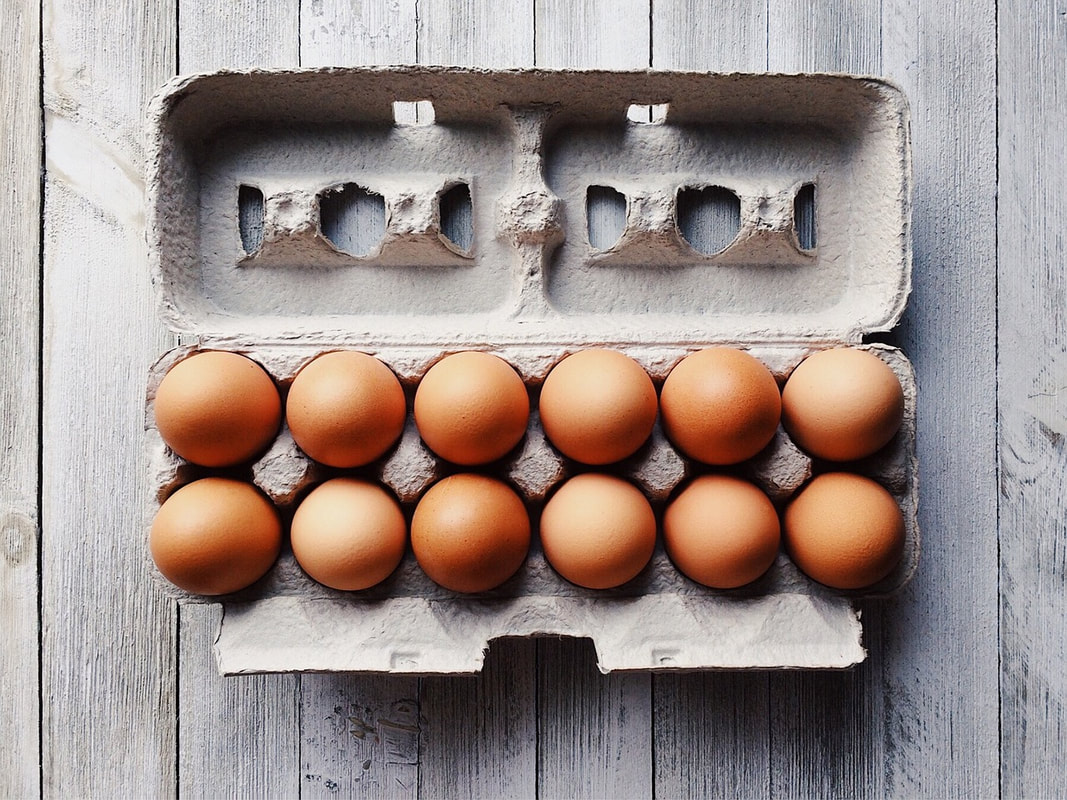
Packaged items such as egg cartons, milk bags and boxes of cereal and crackers often have best before dates on them.
Tip #1: Best Before Dates are NOT Expiry Dates People often misuse/misunderstand the tiny dates printed on packaged foods to mean if the date has passed on the package, it is no longer food safe. But what those dates really mean is the food may not be at its best quality, but it is still safe to eat. This causes much food waste at household level. For example, a family is going away on vacation and throws away a bag of sealed shredded cheese 5 days before the best before date. Chances are, that package of shredded cheese would have been fine for consumption when they returned home – especially because it was still sealed. It just wouldn’t taste as fresh as if eaten ahead of the best before date.
Egg cartons, milk bags/cartons, crackers and bread commonly have best before dates printed on them.
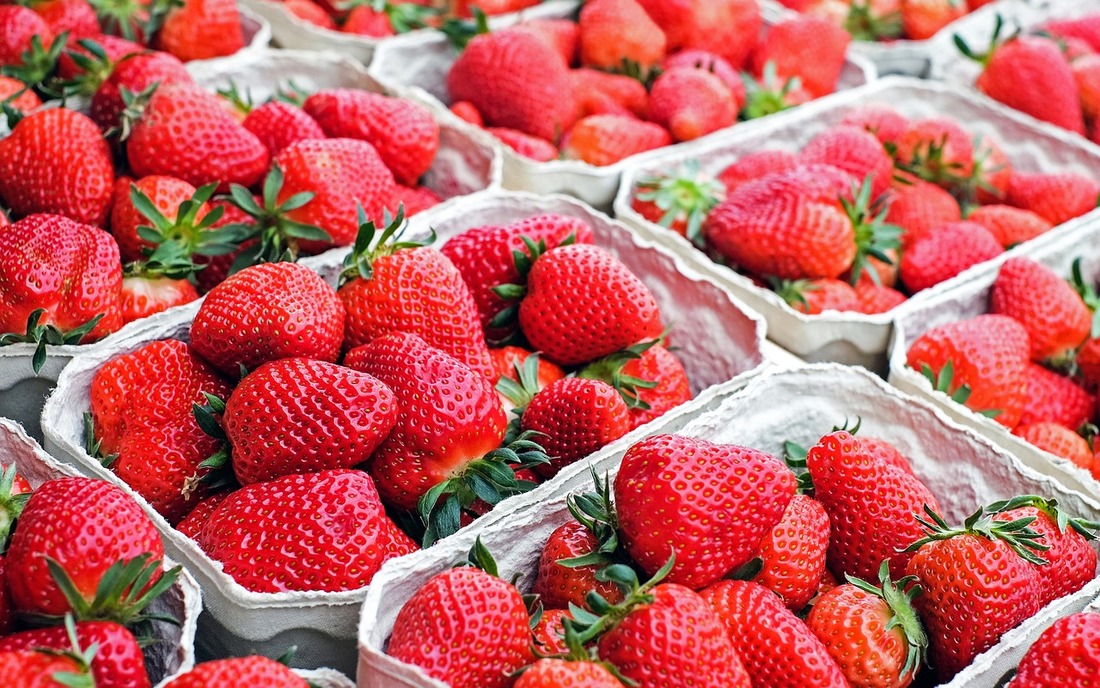
As a registered dietitian, I am often asked the question: Is it more important to buy local or organic produce? While organic vs conventional produce is whole other debate all together, I always encourage people to buy local. Vegetables and fruits get tossed the most because of their short shelf life of about 2-3 days, time they take to wash and prepare (which most people are too tired to do after a long day of work) and I hate to say this but, “unsexy” quality – they’re not as coveted as steak or tempeh or cheese!
Local produce uses less resources than produce that comes from elsewhere in the world. If my organic strawberries come from California, and I live in Toronto – is that an efficient use of resources to get the fruit to me? Greenhouse grown technology has also been able to give us higher quality produce that lasts longer and also reduces the carbon footprint.
When you get Home…
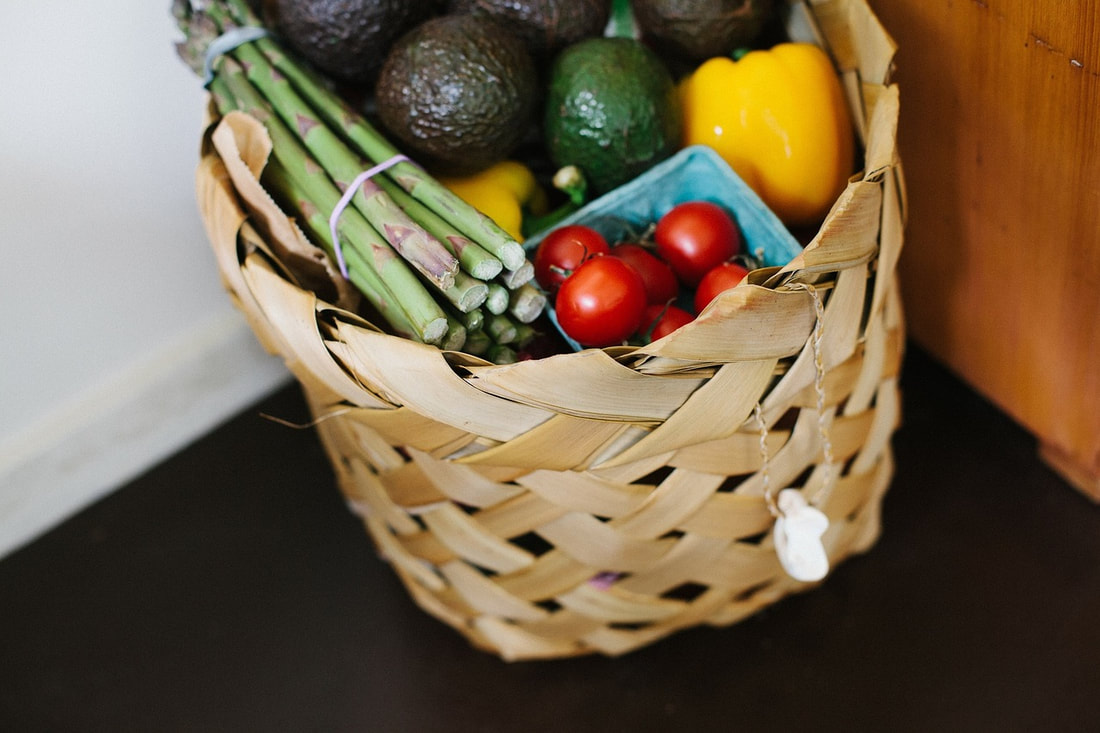
Tip #3: Store Your Produce Appropriately
Most produce should be stored unwashed, because the moisture from washing it can make it spoil faster.For Apples: Store them in perforated bags (snip little holes in the bag) and place the bag in your crisper drawer. Apples release ethylene gas, which speeds up the ripening process. Any bruised apples should be removed, as it will spoil the whole bunch.
Lettuce: Lettuce should be stored unwashed. However, many people tell me if they don’t wash it right away – it will never get eaten and will end up in the bin. I say if you do rinse your greens, pat or spin dry to remove the excess moisture. Store in a container with paper towel to absorb any excess water.
If Your Vegetables / Fruit Start to Look Sad…
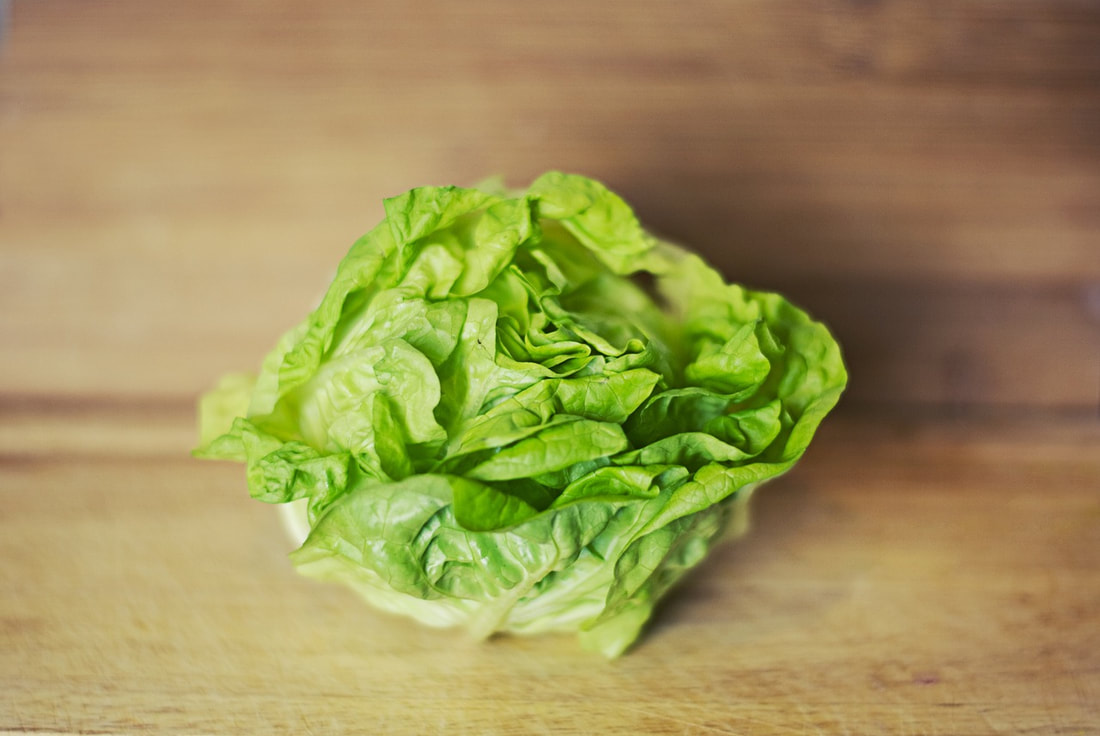
Most less-than-fresh produce can be cooked and made into something else. For example, tomatoes can be made into a beautiful savoury tomato sauce. Slightly bruised strawberries can be made into a sweet sauce, just like I demo-ed on TV. You can use the strawberry sauce on waffles, pancakes, yogurt or oatmeal!
Quick and Easy Strawberry Sauce Recipe Below
You Cannot Avoid All Food Waste…
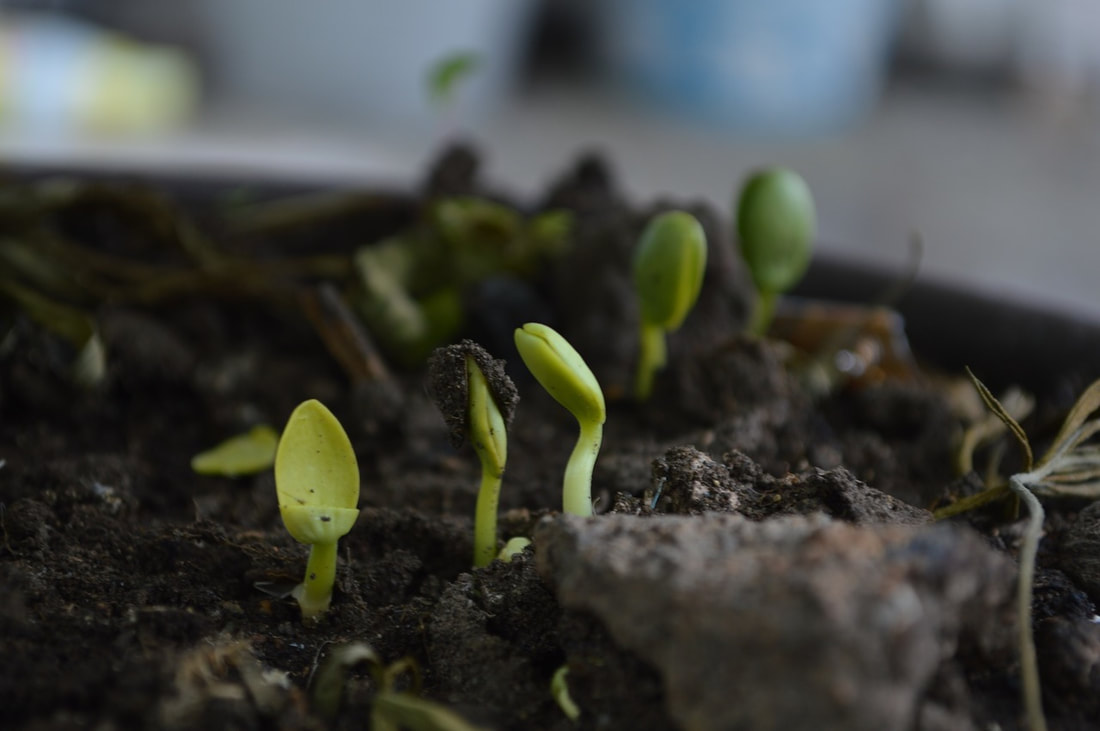
Tip #5: Save the Vegetable Scraps
Carrot peels, celery and kale stalks and onion skins can be frozen and made into a beautiful vegetable broth! Instead of tossing them into the green bin, toss them into a bag you can freeze. To make vegetable broth: Simmer the contents in water for about 45 minutes. Remove vegetable scraps with a sieve when finished.
Tip #6: Use Food Waste for Gardening
Egg shells have calcium and minerals that are healthy for the garden. Put them into the soil as they will help your garden thrive! Used coffee grounds are also great for soil health, as they will attract Earth worms, which help the soil quality. Save your egg shells and coffee grounds for spring and summer gardening, instead of tossing them into the green bin!
Watch the Global TV Interview below!

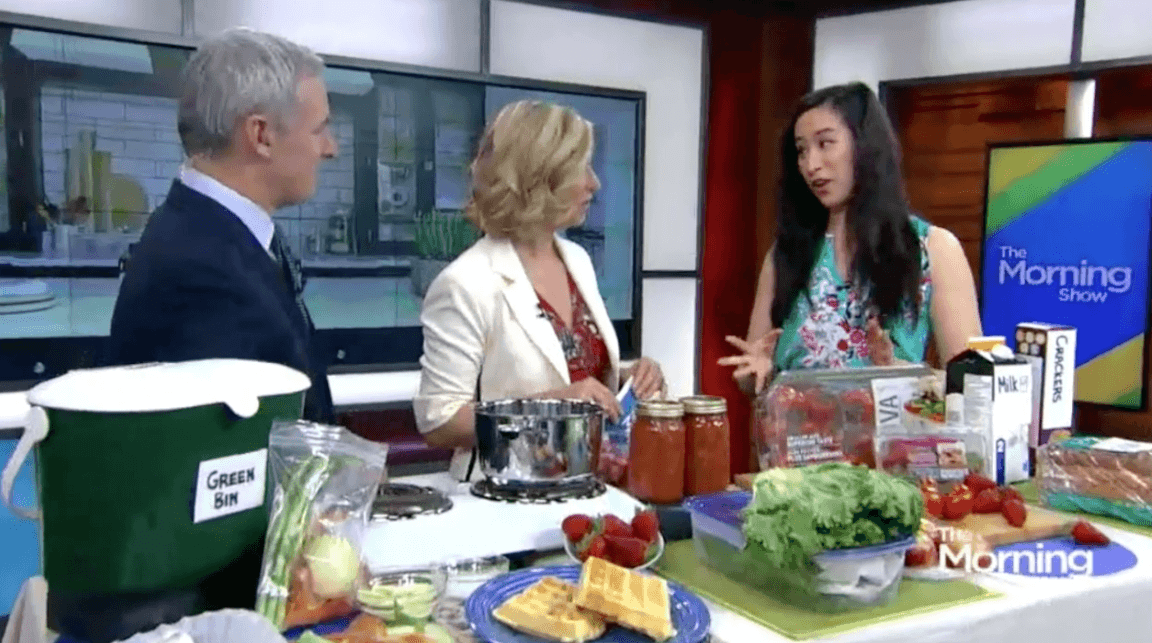

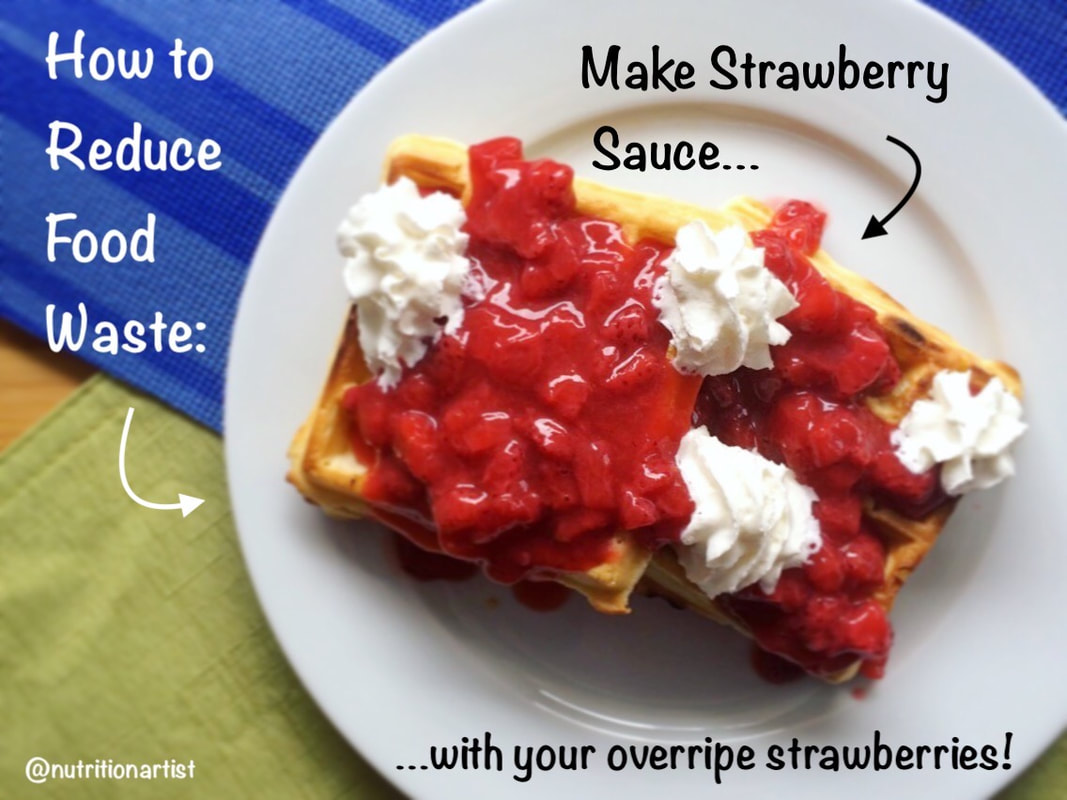

0 Comments